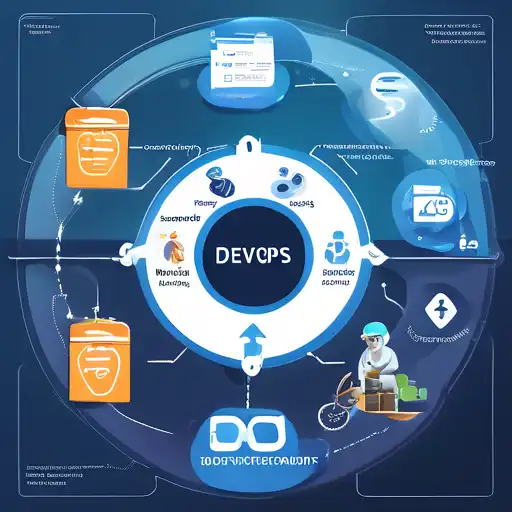Introduction to DevOps in Software Development
DevOps has revolutionized the way software is developed, deployed, and maintained. By bridging the gap between development and operations teams, DevOps practices ensure a smoother, faster, and more efficient software development lifecycle (SDLC). This article explores the pivotal role of DevOps in enhancing the SDLC, focusing on its benefits, methodologies, and best practices.
The Core Benefits of DevOps
DevOps brings numerous advantages to the table, including but not limited to:
- Improved Collaboration: DevOps fosters a culture of collaboration between developers and operations teams, breaking down silos and enhancing communication.
- Increased Deployment Frequency: With continuous integration and continuous deployment (CI/CD), teams can release updates more frequently and with greater reliability.
- Enhanced Efficiency: Automation of repetitive tasks frees up time for teams to focus on innovation and quality.
- Greater Scalability: DevOps practices support scalable infrastructure management, allowing businesses to grow without being hampered by technical debt.
Key DevOps Methodologies
To fully leverage DevOps in the SDLC, certain methodologies are essential:
- Continuous Integration and Continuous Deployment (CI/CD): These practices enable teams to integrate code changes more frequently and deploy them automatically, reducing integration issues and speeding up the release cycle.
- Infrastructure as Code (IaC): IaC allows teams to manage infrastructure through code, improving consistency and reducing manual errors.
- Monitoring and Logging: Continuous monitoring and logging help in identifying and resolving issues in real-time, ensuring high availability and performance.
Best Practices for Implementing DevOps
Adopting DevOps requires a strategic approach. Here are some best practices to consider:
- Start Small: Begin with small, manageable projects to gradually integrate DevOps practices into your workflow.
- Emphasize Culture Change: DevOps is as much about culture as it is about technology. Encourage open communication and collaboration across teams.
- Invest in the Right Tools: Utilize tools that support automation, monitoring, and collaboration to streamline your DevOps processes.
- Focus on Security: Incorporate security practices early in the development process to ensure secure and compliant software releases.
Conclusion
DevOps significantly improves the software development lifecycle by enhancing collaboration, increasing efficiency, and enabling faster, more reliable software releases. By adopting DevOps methodologies and best practices, organizations can achieve a competitive edge in today's fast-paced digital landscape. For more insights into optimizing your development processes, explore our guide on Agile methodologies.
